Navigating the world of adolescent health can be challenging, especially when it comes to understanding consent and privacy. It's crucial for parents and guardians to equip themselves with the right information while ensuring that teenagers feel empowered to make informed decisions about their own health. In this article, we'll break down the essentials of an adolescent health consent form, outlining why it's necessary and how it supports both the young individual and their caregivers. Ready to learn more about this important aspect of adolescent wellbeing? Let's dive in!
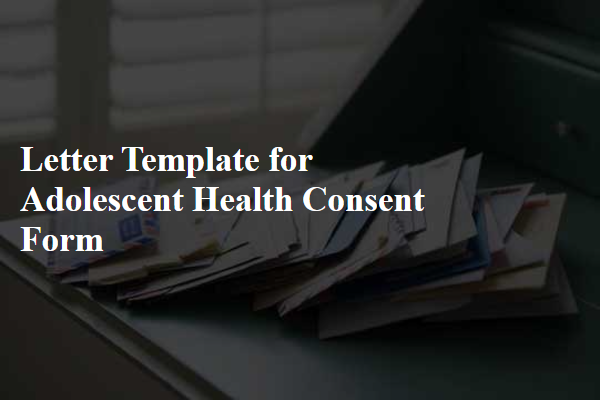
Clear Definition of Consent Purpose
Adolescent health consent forms play a crucial role in providing medical professionals with the necessary approval to deliver care to minors, as in the case of teenagers aged 13 to 18 years. Consent is essential in ensuring that young individuals understand their rights regarding medical treatment, including confidentiality and the ability to make informed choices about their health care. The purpose of these forms is to clearly outline the scope of services provided, such as general medical assessments, mental health evaluations, and reproductive health consultations. By signing the consent form, adolescents acknowledge their understanding of the procedures and treatments involved, as well as their right to discuss their medical options without parental involvement, thereby promoting autonomy in their healthcare decisions. It is imperative that consent forms are comprehensible and tailored to the adolescent's cognitive and emotional maturity, ensuring clear communication and supporting the development of personal responsibility in health-related matters.
Confidentiality and Privacy Assurance
Adolescent health consent forms ensure confidentiality and privacy for young individuals seeking medical care. This document reinforces that personal health information remains protected under laws like HIPAA in the United States. Adolescents aged 12 to 18 can access certain health services, including mental health counseling and reproductive health care, without parental consent in many states, promoting autonomy. Providers must implement secure data storage systems, limit access to authorized personnel, and utilize encrypted communication methods to safeguard records. Assurance of confidentiality encourages adolescents to seek necessary medical support, addressing critical health issues such as mental illness, substance abuse, and sexual health, fostering overall well-being.
Health Risks and Benefits Explanation
Adolescents often face unique health risks, such as mental health challenges, substance use, and sexually transmitted infections (STIs). Understanding these risks is crucial for informed decision-making. Access to preventive services, like vaccinations and counseling, provides significant health benefits. For instance, receiving the HPV vaccine can reduce the risk of certain cancers by up to 90%. On the other hand, engaging in risky behaviors like unprotected sex can lead to serious consequences, including STIs and unintended pregnancies. Open communication with healthcare providers about these issues encourages healthier choices and promotes overall well-being. Educational resources and support systems are essential for fostering a safe and informed adolescent experience.
Parental/Guardian Involvement and Rights
Adolescent health consent forms are crucial in ensuring that young individuals receive appropriate medical care while also recognizing the role of parents or guardians. In many countries, patients aged 12 to 17, like adolescents, can consent to certain medical treatments, including mental health services and sexual health care, without parental permission. However, involvement of parents or guardians can play a vital role in the adolescent's overall health and well-being. Parents or guardians maintain legal rights concerning the health decisions of their children, allowing them to access medical records and participate in certain treatment discussions. It is essential for healthcare providers to communicate to both adolescents and their guardians the importance of collaboration while respecting the adolescent's need for confidentiality and autonomy in health matters. Striking this balance is essential in fostering trust and ensuring that adolescents receive the best possible care.
Language Accessibility and Comprehension
Adolescent health consent forms must ensure language accessibility and comprehension for young individuals navigating sensitive health matters. Clear and simple terminology should replace complex medical jargon, making concepts like "informed consent" easily understandable. The form must include age-appropriate explanations of privacy policies, emphasizing confidentiality, particularly regarding mental health services and sexual health education. Use visual aids, such as infographics, to visually clarify procedures and rights. Providing translations in predominant languages spoken within the community enhances inclusivity. Additionally, incorporating checkboxes or simplified consent statements allows adolescents to indicate their understanding and willingness to participate in health services.
Letter Template For Adolescent Health Consent Form Samples
Letter template of adolescent health consent for participation in research
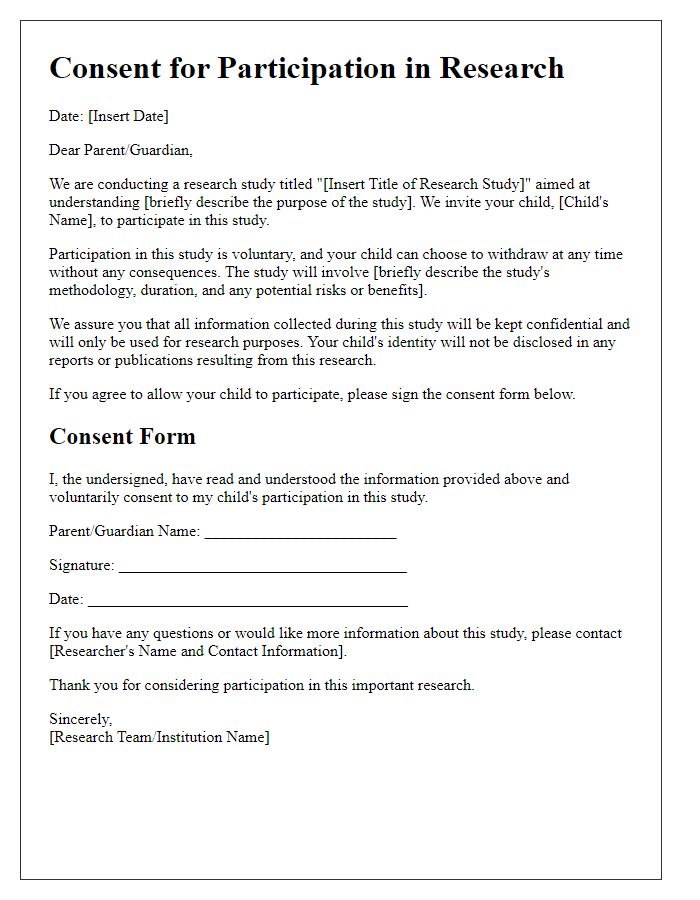
Letter template of adolescent health consent for sports physical examination
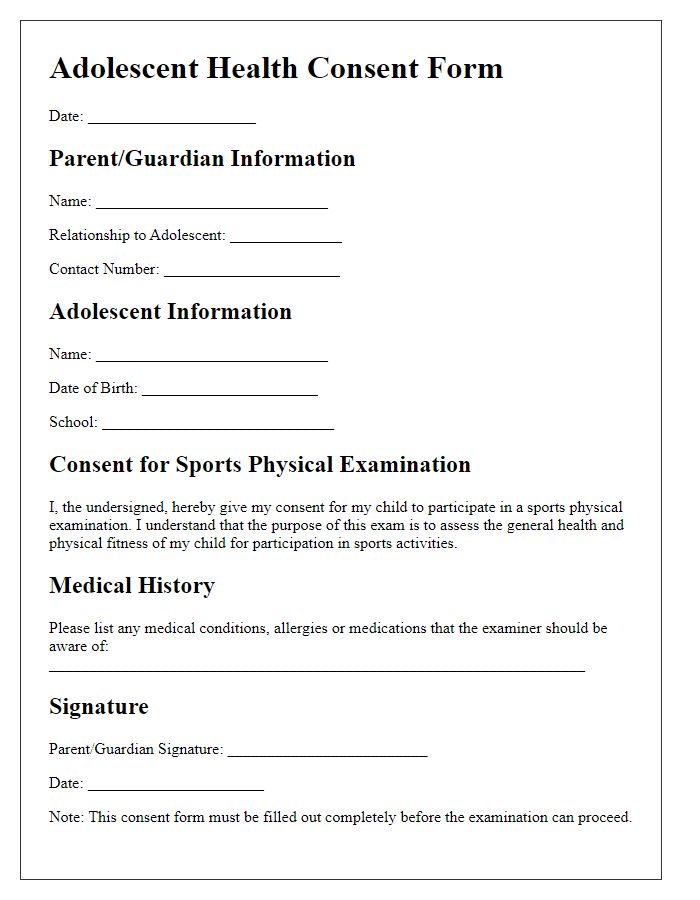
Letter template of adolescent health consent for substance abuse programs
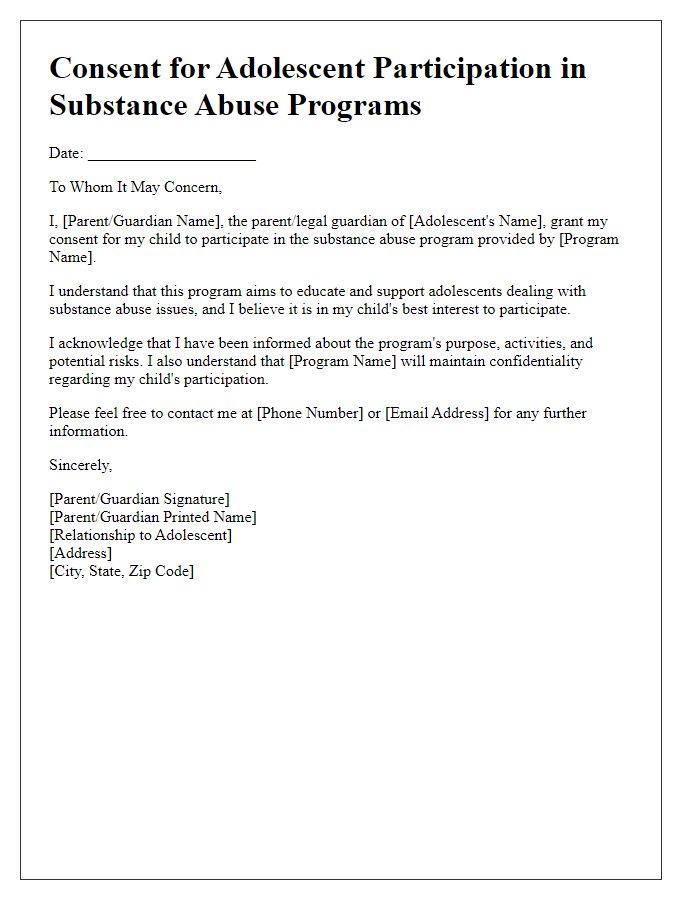

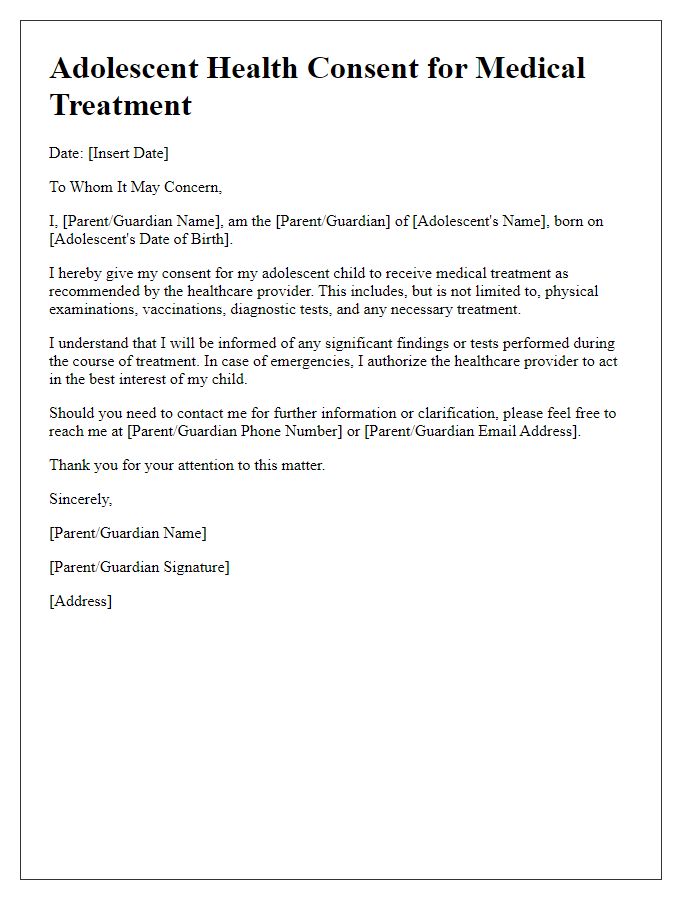
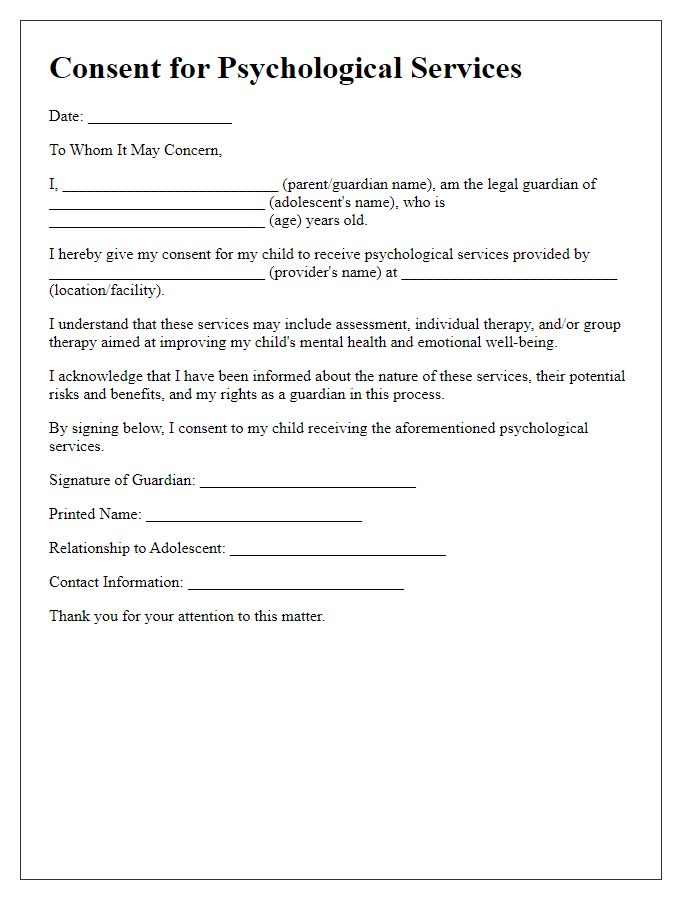
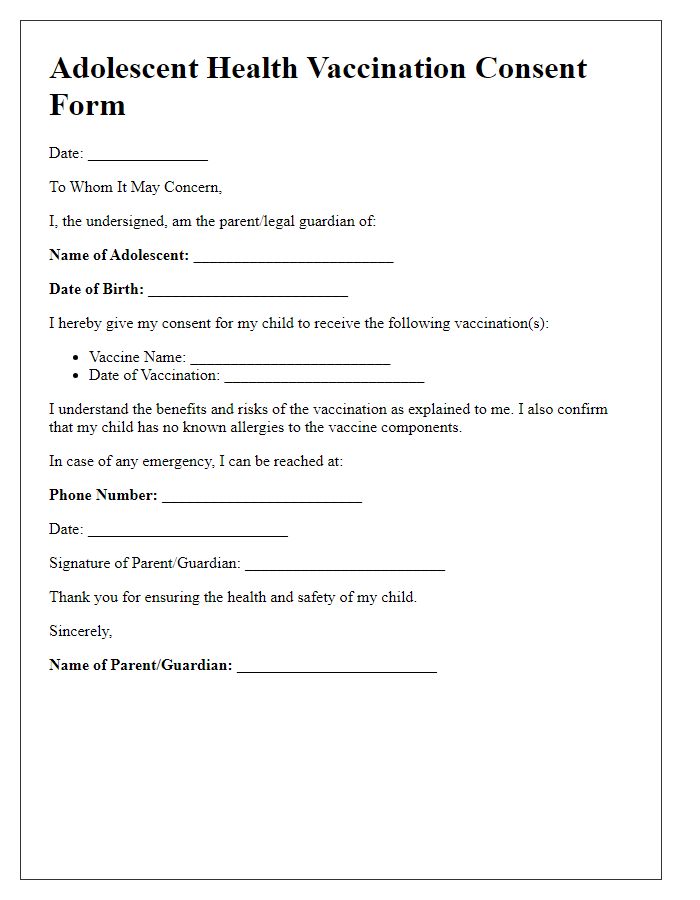
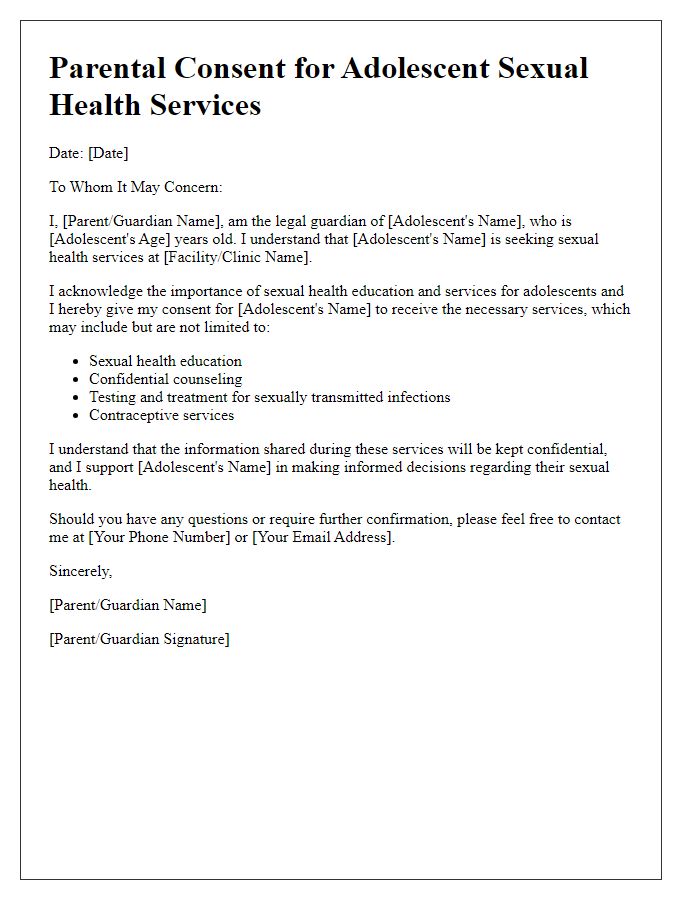
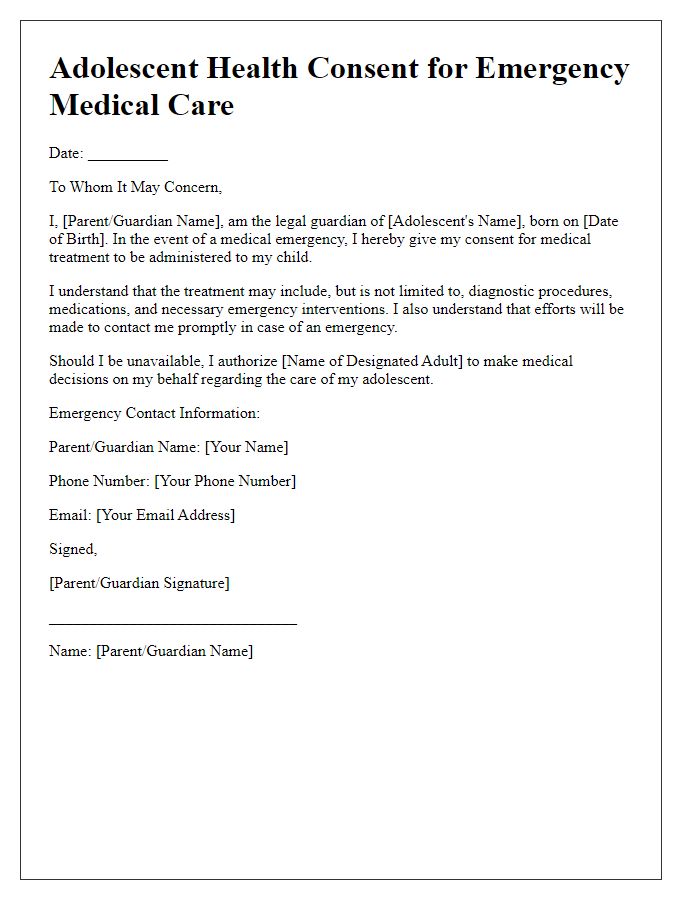
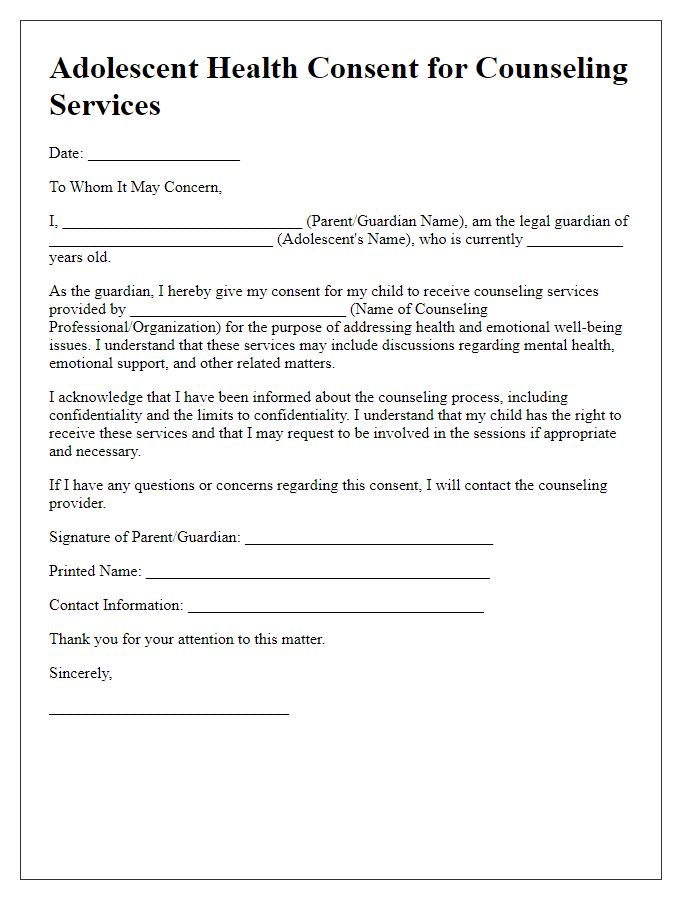
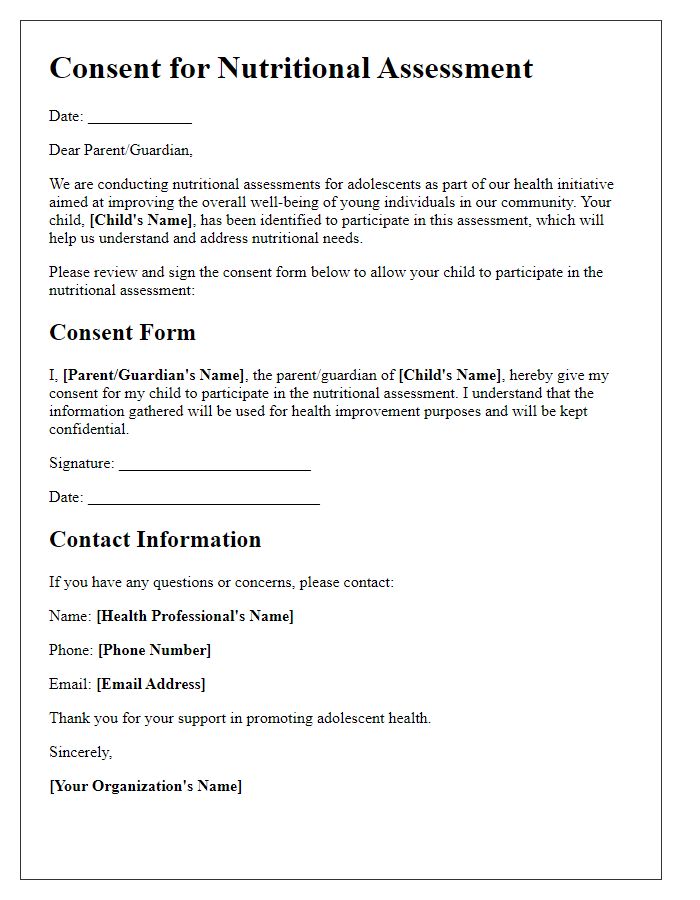


Comments